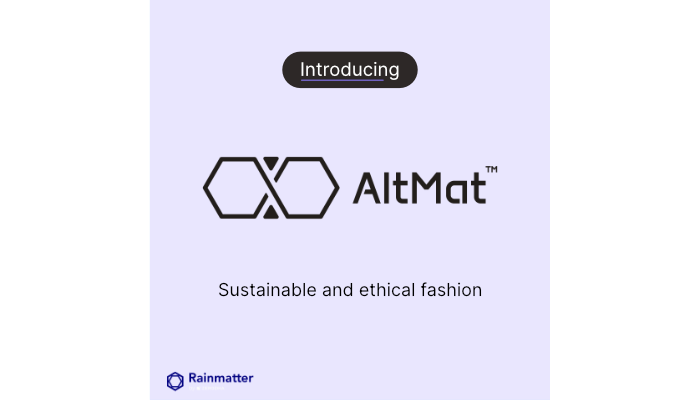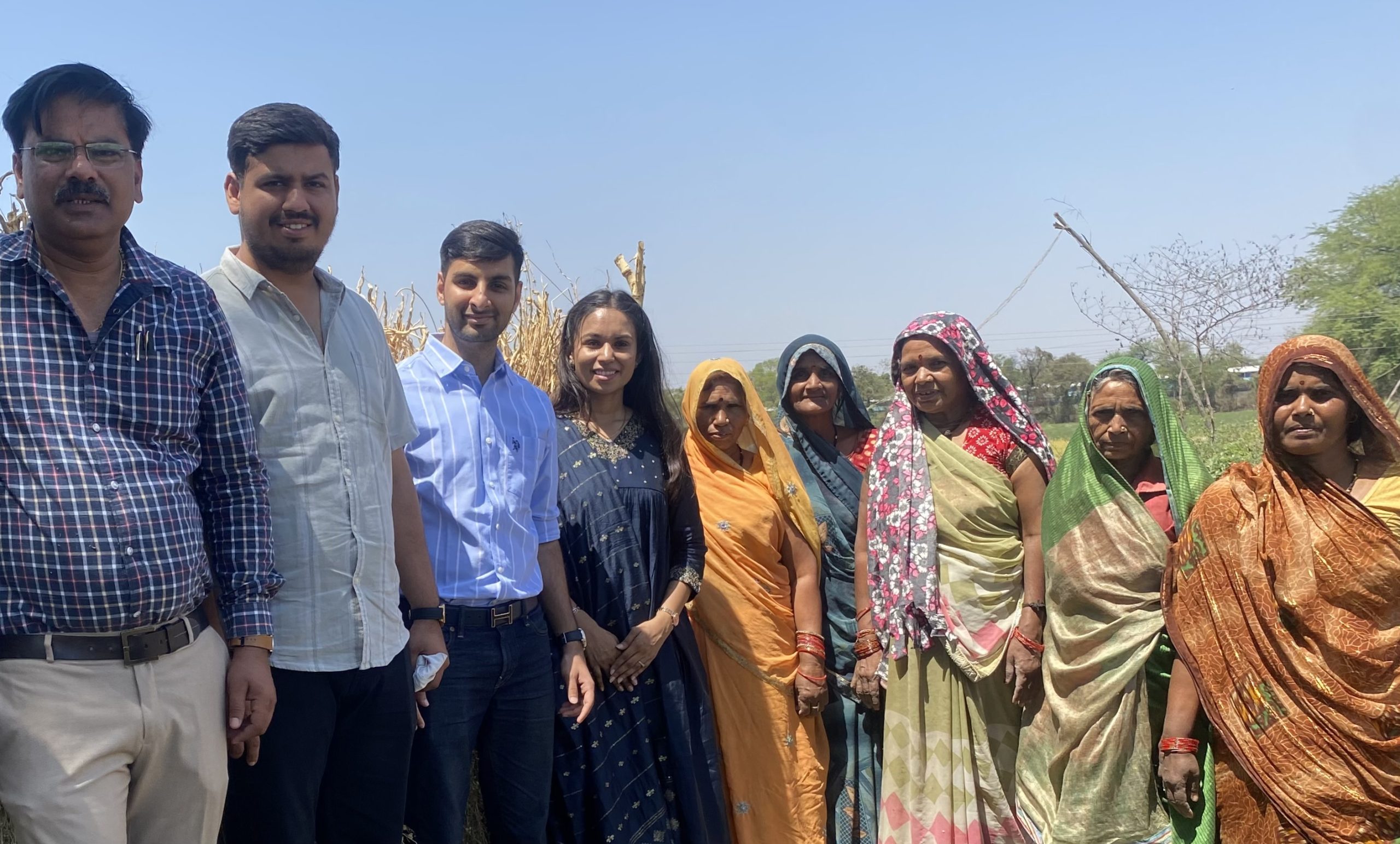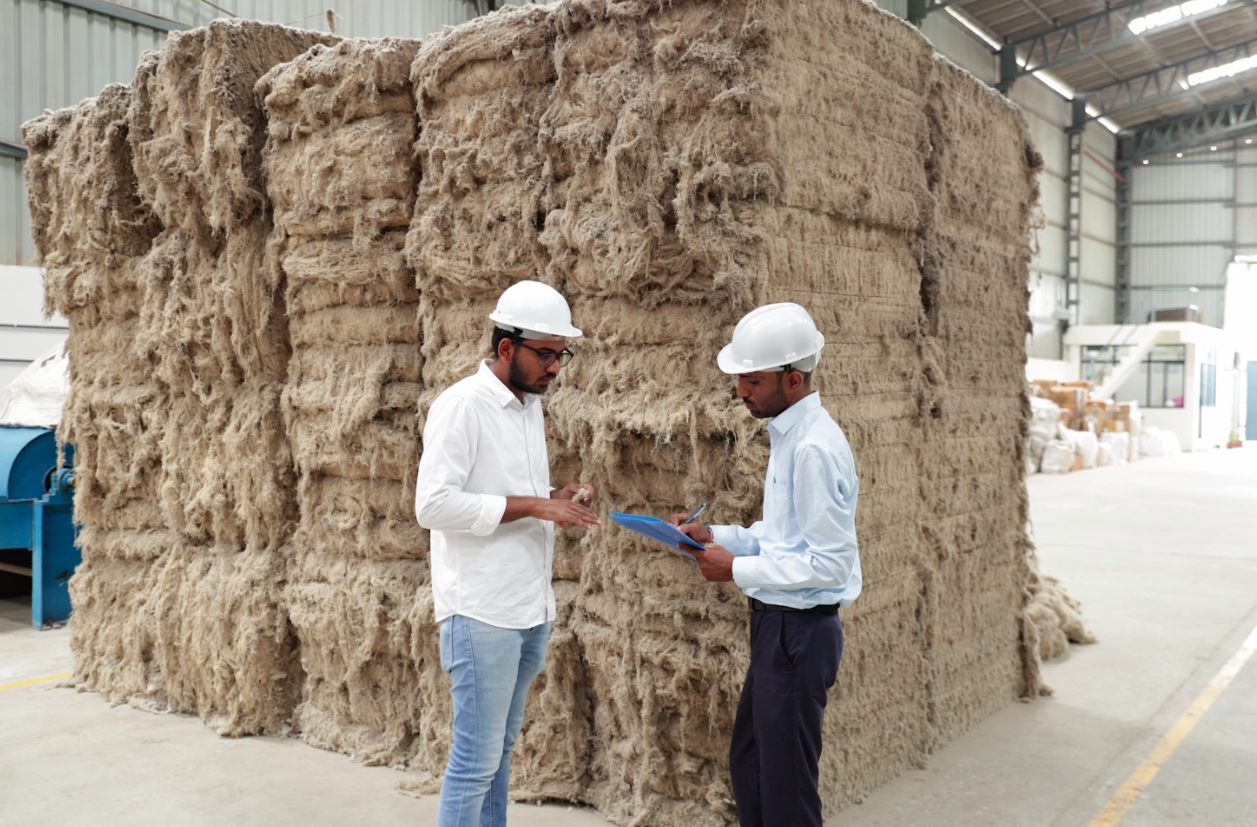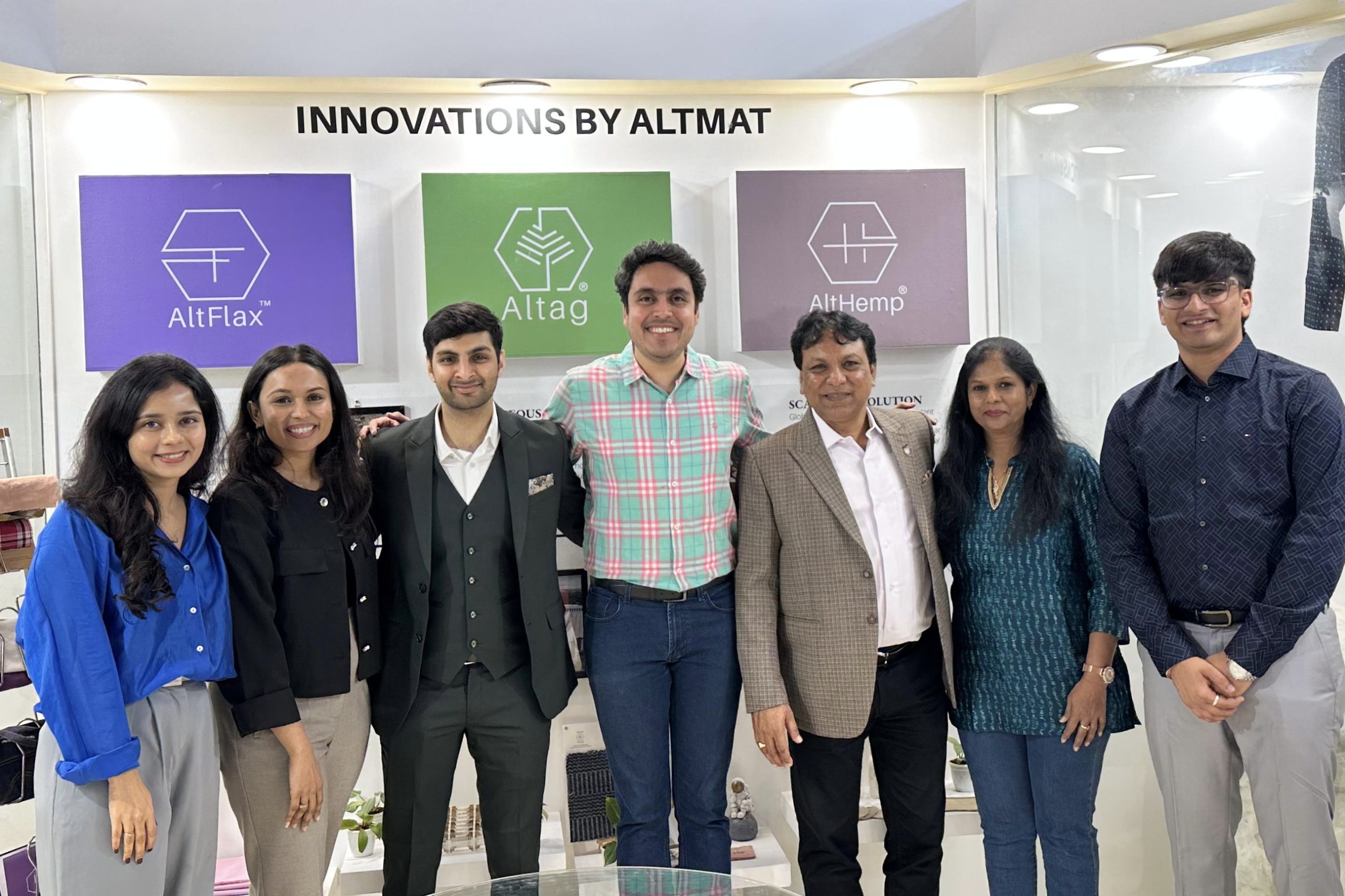
Introducing Altmat
Every year, the world consumes 111 trillion tonnes of textile fibers. Over half of this comes from polyester, essentially plastic – that pollutes our oceans and soils with microplastics. Around a quarter is conventional cotton, which is notorious for its massive pesticide use and water consumption. Another 6.5% are man-made cellulosic fibers (MMCs), created through heavy chemical processing and the destruction of forests.
The supply chain of traditional textiles is fundamentally flawed: resource-intensive and pollutive.
We had been discussing the hidden cost of fashion and were exploring interventions needed in the textile industry to make it more sustainable. That’s when we met Shikha and liked what she’s attempting to do with Altmat.
Altmat is a materials science startup tackling one of the most urgent challenges in textiles: How we sustainably source and produce the fibers we wear every day. They address two major environmental issues: the unsustainable reliance on resource-intensive fibers (like polyester and cotton) and the underutilization of agricultural residue.
AltMat’s Solution
AltMat sources its raw material from agricultural residues of food and medicinal crops, the streams of farm waste that are usually burned, causing air pollution and ecosystem harm. Instead of ignoring this opportunity, AltMat collects and upcycles these residues into high-performance fibers, saving farmers disposal costs and providing them with new income streams.

AltMat addresses both materials pollution and agricultural waste by transforming crop residues into natural cellulose fibres called Altag®. Their process uses 99% less water compared to cotton, avoids hazardous chemicals, and ensures that the material produced is biodegradable and free from microplastics. This foundation enables AltMat to create a supply chain that is sustainable and inclusive.

Here is a note from Shikha about her journey
AltMat’s journey is deeply personal and rooted in social impact. I saw firsthand, growing up in a family business focused on recycling metals and auto waste, how circular economies can transform industries. Academic projects in textile supply chains, experiences in global startups, and exposure to agri-economics culminated in the realization that impact must be paired with scalable business models to drive lasting change.
I questioned whether the world needs impact or profit more, and my journey revealed that real transformation requires both. The next era is a blend of conscious (impact) and capitalistic (profit) mindsets, a coexistence I strived for well before I understood it.
Learning about the irony of loving both fashion and climate action made me look for a solution. The dots connected during a Masters project in the USA examining the impacts of agriculture, eventually resulting in the AltMat blueprint, a scientifically validated, scalable approach to circular textiles.
The AltMat journey began in college labs and quickly advanced through a series of pilots, partnerships, and finally, into industrial scale in Ahmedabad, India. By collaborating with dedicated professors in bast fibers and textile machinery, AltMat developed proprietary processes to transform agricultural residues into spinnable, dyeable fibers suitable for fashion and home textiles.
Since 2023, AltMat has operated its Altag® production facility, with an annual capacity of 1,000 tonnes, equivalent to fibers for approximately 4 million garments every year. This capacity is set to increase 25-fold over the next five years, positioning AltMat as an industrial leader in sustainable fibre production. We have already partnered with 12+ manufacturers across continents and are expanding our network of forward-looking brands to further scale impact.
AltMat’s material innovation is trusted and adopted by renowned brands, including H&M, Ikea, Inditex, Nike, C&A, Tommy Hilfiger, Bestseller, and Converse. These collaborations drive mainstream adoption and validate the commercial viability and sustainability of Altag® fibers.

Why did we decide to support Altmat?
The sustainable textiles industry is a rapidly growing segment within the broader global textile market, driven by increasing consumer awareness, regulatory pressures, and innovations in eco-friendly materials and production processes. Altmat has the promise of being an impactful player in this segment.
Altmat’s potential impact was too large for us to not partner with them and support them.
Some of the impact metrics that made us invest in them:
- Water saved vs cotton: In 2025, AltMat will save 1.2 billion litres of water per year relative to cotton, forecasted to exceed 30 billion litres by 2030.
- No Microplastic Pollution: Altag® fibers are 100% biodegradable and recyclable, ensuring zero contribution to microplastic pollution.
- Carbon Reduction: By 2026, >1.4 million kg CO₂ emissions will be avoided annually and by 2030, this exceeds 14 million kg CO₂ each year.
- Contribution to agri revenue: AltMat’s growth will enable >70 crore INR annual revenue for South Asian farmers by 2030, directly supporting rural prosperity.
